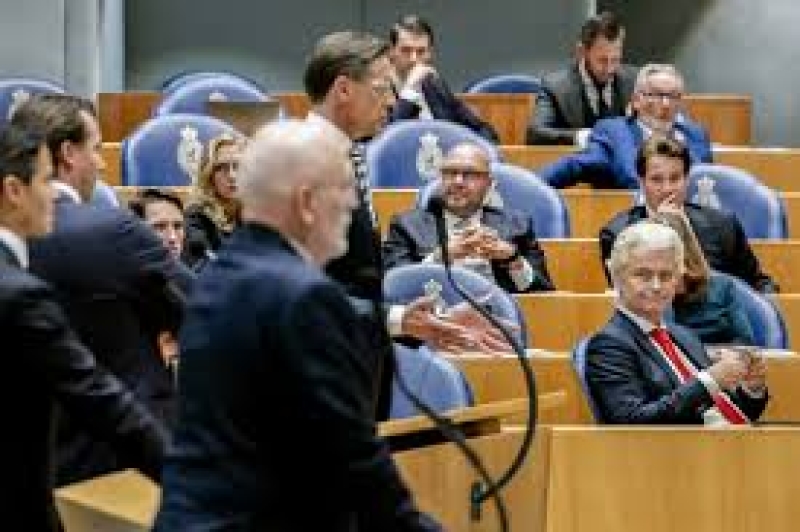- CA’s rep visit Evercare to enquire about Khaleda’s health |
- 2 killed as bus hits truck on Dhaka-Chattogram highway |
- Chief Adviser seeks prayers for Khaleda Zia’s recovery |
- Southeast Asia Floods Kill Over 250, Thousands Displaced |
- Trump Vows to Halt Migration From ‘Third World’ Nations |
Dutch Election Set for Oct 29 After Govt Collapse

The Netherlands will hold snap elections on October 29 after far-right leader Geert Wilders withdrew his party from the ruling coalition, triggering the government’s collapse and plunging Dutch politics into uncertainty.
Interior Minister Judith Uitermark confirmed the date on Friday, writing on X (formerly Twitter):
“We have officially set the election date: Wednesday, 29 October 2025. I will work with municipalities and stakeholders to ensure everything runs smoothly on this important day.”
The vote comes at a turbulent time in European politics, as far-right parties make significant gains across the continent. The Netherlands, the EU’s fifth-largest economy and a key global exporter, will be closely watched during this pivotal election.
Tight Race Expected
Recent polls show Wilders’ Freedom Party (PVV) in a dead heat with a Left-Green alliance led by former European Commission Vice-President Frans Timmermans. The liberal VVD trails slightly behind, suggesting a fiercely contested race ahead.
Wilders’ decision to exit the coalition followed disputes over immigration policy. He accused the government of dragging its feet on implementing what was intended to be the country’s toughest-ever migration rules — a central promise of the coalition.
Wilders shocked the political establishment by winning 37 seats in the November 2023 elections, making the PVV the largest party in parliament. But with no party holding an outright majority, Wilders formed a fragile coalition with the VVD, the BBB (Farmers’ Party), and the NSC (anti-corruption party), giving up his own ambition to become prime minister as part of the deal.
Far-Right Gains — and Limits
Since the coalition’s collapse, PVV’s support has dipped slightly, with polls projecting 28–30 seats. The key question post-election will be whether other parties are willing to join forces with Wilders again.
The move to bring down the government has drawn criticism, with many accusing Wilders of manufacturing a crisis. Nonetheless, his move reflects a broader trend: the far-right’s continued rise across Europe.
In recent months, Portugal’s Chega party surged to second place, Germany’s AfD doubled its vote share in legislative elections, and the UK’s Reform UK party, led by Nigel Farage, has seen strong gains in local elections.
As the Netherlands heads to the polls, the outcome could reshape not only Dutch politics but influence the broader European landscape ahead of 2026’s EU-wide elections.

